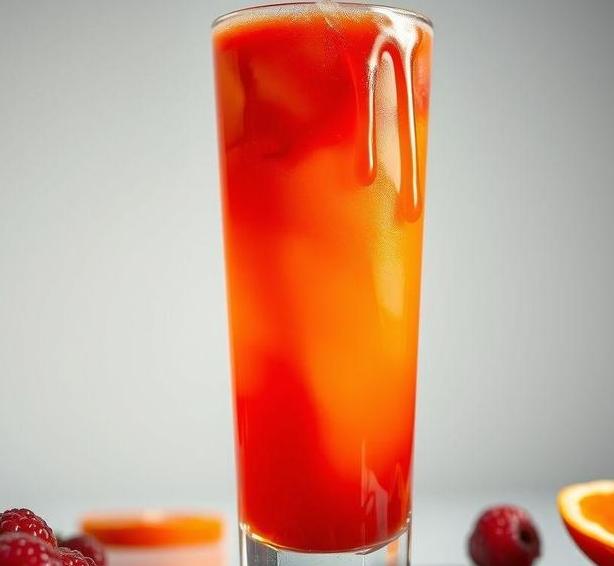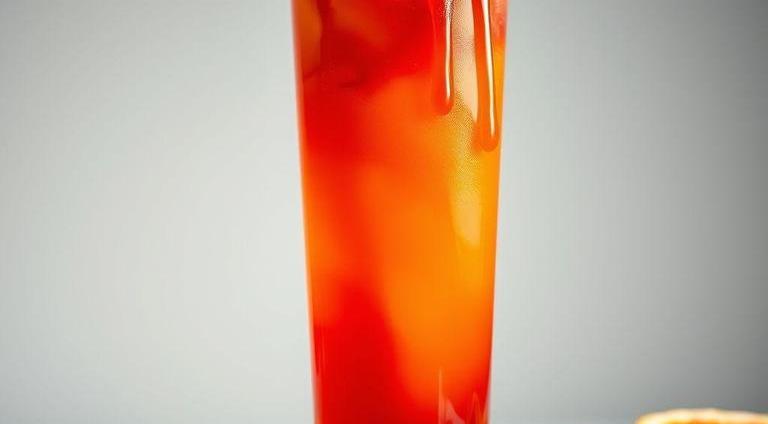Juice concentrate is a popular kitchen staple, offering the convenience of fresh fruit juice without the hassle of squeezing every last drop. Whether you’re making a quick glass of juice, adding flavor to recipes, or preparing a batch of cocktails, juice concentrate can be a go-to ingredient. However, many people are left wondering: can juice concentrate go bad? It’s a fair question, especially since it often comes in large containers or cartons that aren’t always used up quickly.
The answer is yes, juice concentrate can spoil over time, and it’s important to know how to store it properly, how long it lasts, and the signs that it may no longer be safe to consume. In this article, we’ll dive deep into everything you need to know about juice concentrate’s shelf life, spoilage signs, storage tips, and more.
Can Juice Concentrate Go Bad?
Yes, like almost every food product, juice concentrate can go bad. While juice concentrate has a much longer shelf life than fresh juice, it doesn’t last forever. The concentrated form means it’s packed with more sugars, preservatives, and sometimes citric acid or other additives to help preserve its shelf life. However, even with these preservatives, it’s still susceptible to spoilage over time if not stored properly.
Here’s a deeper look at why juice concentrate can go bad:
- Exposure to air: Once you open a can or carton of juice concentrate, oxygen can speed up degradation.
- Temperature changes: If the concentrate is exposed to fluctuating temperatures, it can spoil more quickly.
- Microbial contamination: Any time juice concentrate comes into contact with bacteria or mold (for example, from improper handling), it can start to spoil.
- Chemical reactions: Oxidation, a process that happens when juice concentrate is exposed to air, can lead to changes in taste, color, and texture.
While juice concentrate won’t spoil as rapidly as fresh juice, it’s essential to check for signs of spoilage and use the concentrate before it passes its prime.
Shelf Life For Juice Concentrate

Understanding the shelf life of juice concentrate is crucial to avoid consuming something that’s gone bad. The shelf life depends on whether the juice concentrate is unopened or opened and how it’s stored.
- Unopened Juice Concentrate: If the concentrate is unopened, it typically lasts anywhere from 12 months to 18 months when stored in a cool, dry place, such as a pantry or kitchen cupboard. Most manufacturers will provide an expiration date on the packaging, and this is a good guideline to follow.
- Opened Juice Concentrate: Once you open the container, the clock starts ticking. Juice concentrate will usually last for about 7-10 days in the fridge after opening, depending on the specific product. Some concentrates might have preservatives that extend this timeframe, but it’s always better to check the product’s instructions.
- Frozen Juice Concentrate: One of the best ways to extend the shelf life of juice concentrate is by freezing it. When frozen, juice concentrate can last up to 12-18 months without losing its flavor or texture. If you’re planning to store a large batch, freezing is a great option!
Storage Tips For Extended Shelf Life
- Always reseal tightly after opening.
- Store in a dark, cool place to avoid direct sunlight.
- Consider freezing if you won’t use it all at once.
Common Signs Of Spoilage
Just like any other food product, juice concentrate can show clear signs that it’s no longer safe to consume. Here’s how you can tell when your juice concentrate has gone bad:
- Off or Sour Smell: The most noticeable sign of spoilage is an unpleasant odor. Juice concentrate should smell fruity and fresh. If you detect a sour or fermented smell, it’s likely gone bad.
- Mold Growth: Mold is a clear sign that your concentrate is spoiled. You might notice it as small, fuzzy spots on the surface or inside the container. If you see mold, discard the concentrate immediately. Even though some types of mold can be scraped off, it’s better to be safe than sorry.
- Color Changes: Juice concentrate, particularly citrus-based ones, will lose its vibrant color over time. If it looks dull or brownish, it could be a sign of oxidation or spoilage.
- Change in Taste: This is one of the most obvious signs of spoilage. If the juice concentrate tastes off, sour, or flat, it’s best to toss it out.
- Separation or Clumping: While some juice concentrates naturally separate when stored, noticeable clumps or a drastic change in texture might suggest it’s gone bad.
How To Store Juice Concentrate?

Proper storage is the key to ensuring that your juice concentrate stays fresh for as long as possible. Here are the best ways to store juice concentrate to extend its shelf life:
Unopened Juice Concentrate
- Pantry or Cupboard: Store unopened juice concentrate in a cool, dark place away from sunlight and heat sources. The pantry or cupboard works great as long as the temperature stays consistent.
- Avoid Humidity: Humidity can promote mold growth or cause the packaging to deteriorate, so keep the concentrate in a dry environment.
Opened Juice Concentrate
- Refrigeration: Once opened, juice concentrate should be transferred to the fridge. Always tightly seal the container to prevent air from getting in, which could speed up spoilage.
- Use Airtight Containers: If you’ve opened a large container, it’s helpful to transfer the concentrate to a smaller, airtight container to reduce air exposure.
Freezing Juice Concentrate
- Freezer Storage: If you’ve got a surplus of juice concentrate and don’t think you’ll use it before it spoils, freezing is a great option. Transfer the concentrate to freezer-safe containers, leaving some space for expansion.
- Portion It Out: Consider freezing the concentrate in smaller portions so you only thaw what you need.
Expert Tips
To get the most out of your juice concentrate, here are some expert tips you might find useful:
- Label It: When storing opened concentrate, write the date on the container. This way, you’ll easily know how long it’s been sitting in the fridge.
- Check for Overuse of Additives: Some concentrates are loaded with artificial sweeteners or preservatives. If you want a more natural product, look for options with fewer additives.
- Dilution: If your juice concentrate has lost a bit of its flavor, try diluting it with a bit more water. Sometimes a touch of lemon or lime juice can help bring back the freshness.
- Taste Test Before Using: Always taste-test the juice concentrate before using it in recipes or drinks, especially if it’s been stored for a while. This way, you can avoid any unpleasant surprises.
FAQs
Can Juice Concentrate Go Bad If Left Unopened?
Yes, juice concentrate can go bad even when left unopened. While it has a longer shelf life due to its concentrated form, it can still spoil over time if stored improperly. Factors like high temperatures, exposure to light, and a compromised seal can cause the concentrate to degrade and potentially grow harmful bacteria or mold.
How Can I Tell If Juice Concentrate Has Gone Bad?
Signs that juice concentrate has gone bad include changes in color, texture, or smell. If the concentrate has developed an off or sour odor, appears discolored, or has visible mold growth, it’s best to discard it. Additionally, if it has an unusual taste, it could indicate spoilage.
What Is The Shelf Life Of Unopened Juice Concentrate?
Unopened juice concentrate can last anywhere from 1 to 3 years when stored in a cool, dry place away from direct sunlight. The shelf life will vary based on the specific type of juice and any preservatives used in the concentrate.
Can I Store Juice Concentrate In The Refrigerator?
Storing juice concentrate in the refrigerator after opening is recommended to extend its shelf life. However, unopened juice concentrate should be stored in a cool, dry pantry. Refrigeration is not necessary for unopened concentrate but may help maintain its quality after opening.
What Happens If I Drink Expired Juice Concentrate?
Drinking expired juice concentrate can cause foodborne illness, especially if the concentrate has spoiled. Consuming an old product may lead to stomach upset, nausea, or more severe symptoms if bacteria or mold has developed.
How Long Does Juice Concentrate Last Once Opened?
Once opened, juice concentrate typically lasts between 1 and 2 weeks when refrigerated. However, it’s important to check for signs of spoilage such as off smells, discoloration, or mold growth before consuming.
Can Freezing Juice Concentrate Help Extend Its Shelf Life?
Yes, freezing juice concentrate can extend its shelf life. If you don’t plan to use it quickly, freezing the concentrate in an airtight container will preserve its quality for up to 6 months, depending on the type of concentrate.
Does Juice Concentrate Lose Its Nutritional Value Over Time?
Yes, juice concentrate can lose some of its nutritional value over time, particularly vitamin C, which is sensitive to heat, light, and oxygen. While the concentrate may still be safe to consume within its shelf life, it might not provide the same health benefits as fresh juice.
Can Juice Concentrate Ferment Or Develop Alcohol?
Yes, juice concentrate can ferment if exposed to air or improper storage conditions. The sugars in the concentrate may begin to ferment, potentially causing the concentrate to develop an alcoholic taste. If this occurs, it should be discarded.
Are There Any Specific Storage Guidelines To Prevent Juice Concentrate From Going Bad?
To prevent juice concentrate from going bad, store it in a cool, dry place before opening, and refrigerate it after opening. Keep the container tightly sealed to avoid contamination and exposure to air. Always check expiration dates and signs of spoilage before use.